Challenge before Rahul Gandhi
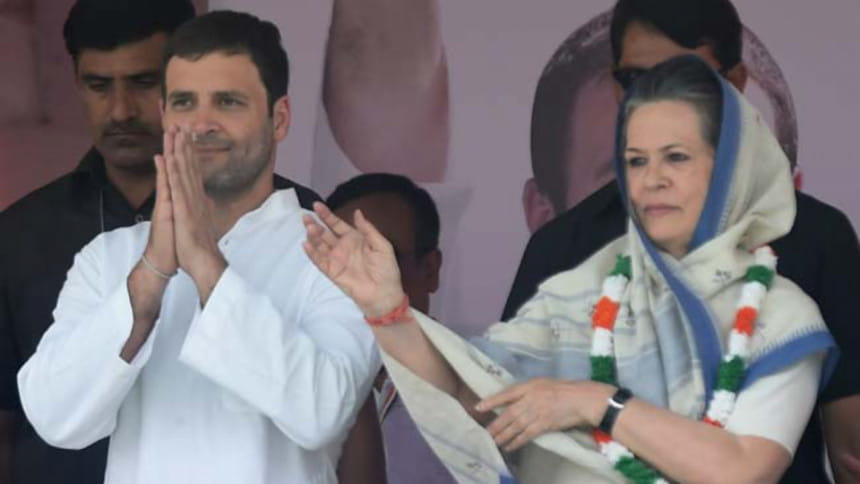
Political parties all over the world have come to be closed shops. What is known as the "High Command" usually dictates on who will be installed as the president. Rahul Gandhi has been "elected" as the Congress president. The outgoing chief Sonia Gandhi saw to it that her son would occupy the top party position.
I had seen the change in the Conservative Party of the United Kingdom from close quarters when I was India's High Commissioner at London in the nineties. Margaret Thatcher was the prime minister. But she was asked to step down and she had to abide by the orders of the party.
I asked her directly why she was doing so. Her children were doing business in South Africa and they were not in any way connected with the issue. She said that she had purposely sent them far away lest she should be accused of nepotism. She said that "the men in grey suits decided when the prime minister should step down. They would tap the shoulder and you are expected to step down." John Major was her successor.
When there was a clamour for Sonia Gandhi to occupy the position of prime minister she declined the offer and instead selected the faithful Manmohan Singh ahead of the most acceptable and experienced Pranab Mukherjee. It was an open secret that the government would be run from 10 Janpath, Sonia Gandhi's residence and Manmohan Singh fitted into her scheme of things.
The government's secret files would go to her residence where her political secretary Ahmed Patel first vetted them and then sent them to Sonia Gandhi for her approval. So much so that Manmohan Singh came to be known as an "accidental prime minister" and a book by his press officer also confirmed the expression. When he was asked to comment on the title given to him, he merely said that posterity would judge.
Newspaper reports published since then confirmed that he was merely the mukuta (mask) and in his name the administration ran from 10 Janpath. In fact, even Rahul Gandhi once denounced the controversial ordinance to negate the supreme court verdict on convicted lawmakers as "complete nonsense" and said what "our government has done is wrong." This was a huge embarrassment for the UPA government and Prime Minister Manmohan Singh.
It is another matter that Congress President Sonia Gandhi and other party members stood behind what Manmohan Singh had said. But then the damage had already been done. There were several other occasions when the prime minister was ridiculed by the party members, including those who were a part of the inner circle. It is unfortunate that Manmohan Singh himself felt that he was only keeping the chair of prime minister warm for Rahul Gandhi to take over.
The anointment of Rahul Gandhi as party president has not come as a surprise at all. But it does underline the fact that there is no other go for the Congress except depending on the dynasty to give a name which is generally acceptable to the country. Priyanka Vadra could have perhaps been the right choice in the eyes of the Congress stalwarts. But nobody dares Sonia who has decided that her son would take over. This is said to be the practice in Italy where the son inherits the mantle.
But the million-dollar question is whether Rahul would fit in the role he is expected to perform? I recall the initial days of Indira Gandhi when after the sudden death of Lal Bahadur Shastri, the then Congress President K Kamaraj installed her as the prime minister. I asked him then why did he choose her? He said that before his death, Jawaharlal Nehru had indicated that his successor would be Shastri. When Kamraj asked Nehru specifically why not Indira Gandhi, he said: Not now.
Morarji Desai, the claimant, did not agree to the choice of Indira Gandhi and insisted on election. With the party president and other stalwarts opposing him, Morarji Desai lost the race. It is another matter that Kamaraj was subsequently sidelined. I was in the thick of things and asked Kamaraj why he preferred Indira Gandhi over Morarji Desai? His answer was that "Morarji was too rigid and did not believe in principal of consensus."
The timing of Rahul's anointment as party president has come at a time when the Congress has lost its sheen. The party still believes that he would be able to dispel the magic of Prime Minister Narendra Modi in his home state which is going to the polls next month. Understandably, the Congress has struck a seat-adjustment deal with the Patidars to capture power in Gujarat. But it remains to be seen whether Rahul Gandhi will be able to make the turn around which the party is looking for.
In the past, when he was made vice-president and poll campaigner he miserably failed in states like Madhya Pradesh, Haryana and even in Uttar Pradesh where the Congress had a poll alliance with the Samajwadi Party. In other words, he could not make much of a difference to the fortunes of the party. Unfortunately, despite having some stalwarts in the party, the deep-rooted culture of dynasty has come to prevail.
The biggest challenge for Rahul Gandhi is the forthcoming election in Gujarat. In fact, this is a key election for all political parties, including the ruling Bharatiya Janata Party. Apart from Rahul Gandhi, the state assembly polls will also be a litmus test for both Prime Minister Modi and BJP President Amit Shah. They will leave no stone unturned to see that their party wins because what happens in Gujarat would decide the fate of general elections, due two years later. This will also show which way the wind is blowing.
But then two years is too long a period to depend on what happens now. The Congress which is irrelevant now may retrieve the ground because no government can meet the demands of what people want.
Kuldip Nayar is an eminent Indian columnist.
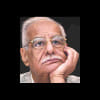


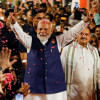
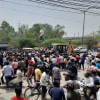

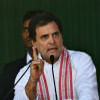
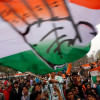


Comments